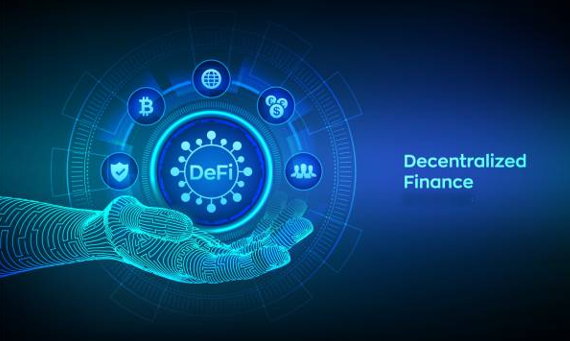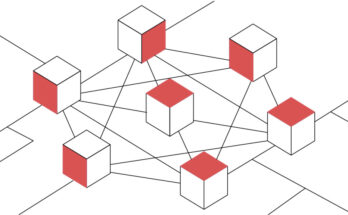Imagine a financial system without traditional banks, intermediaries, or bureaucratic hurdles. Welcome to the world of Decentralized Finance or DeFi, a groundbreaking innovation transforming how we think about money and financial services. DeFi has garnered attention for its potential to democratize finance, increase access to financial services, and revolutionize traditional banking. In this article, we’ll explore what DeFi is, its potential benefits, and how it’s disrupting the financial industry. Whether you’re a financial expert or simply curious about the future of finance, read on to discover the exciting world of DeFi.
What Is DeFi?
DeFi refers to a blockchain-based financial ecosystem that seeks to recreate and enhance traditional financial services, such as lending, borrowing, trading, and asset management, without relying on centralized intermediaries like banks.
Key Characteristics of DeFi
Decentralization: DeFi applications are built on blockchain networks, which are decentralized and transparent, removing the need for intermediaries.
Accessibility: DeFi aims to make financial services accessible to anyone with an internet connection, regardless of their location or background.
Interoperability: DeFi protocols are often designed to work together seamlessly, creating a web of interconnected financial services.
The Potential of Decentralized Finance
Financial Inclusion
One of the most significant potential benefits of DeFi is its ability to extend financial services to unbanked and underbanked populations worldwide. With just a smartphone and an internet connection, individuals can access loans, savings accounts, and investment opportunities.
Reduced Costs
DeFi eliminates the need for traditional banking infrastructure, which can be costly. Without middlemen, transaction fees are often lower, making financial services more affordable for users.
Transparency and Security
Transactions on blockchain networks are transparent and immutable, reducing the risk of fraud and manipulation. Smart contracts, a key component of DeFi, automate agreements and enforce terms without the need for a trusted third party.
Accessibility to Global Markets
DeFi platforms enable users to access global financial markets 24/7. This access can diversify investment portfolios and reduce exposure to local economic fluctuations.
DeFi Applications
Decentralized Exchanges (DEXs)
DEXs enable users to trade cryptocurrencies directly with one another without the need for a centralized exchange. Popular DEXs include Uniswap and SushiSwap.
Lending and Borrowing
DeFi lending platforms like Aave and Compound allow users to lend their cryptocurrencies and earn interest or borrow assets by providing collateral.
Yield Farming
Yield farming involves using various DeFi protocols to maximize returns on cryptocurrency holdings. It often involves providing liquidity to liquidity pools or participating in governance.
Stablecoins
Stablecoins are cryptocurrencies designed to maintain a stable value, often pegged to a fiat currency like the US dollar. They play a crucial role in DeFi by providing a stable unit of account.
Challenges and Risks
Smart Contract Vulnerabilities
While smart contracts enhance security, they are not immune to vulnerabilities and bugs. Exploits in DeFi protocols have led to significant losses for users.
Regulatory Uncertainty
DeFi operates in a rapidly evolving regulatory landscape, with governments worldwide exploring how to oversee and regulate these platforms.
User Education
DeFi can be complex, and users must educate themselves to safely navigate this new financial landscape. Misunderstanding or misuse can lead to financial losses.
The Future of DeFi
The DeFi space is constantly evolving, with developers and entrepreneurs creating new applications and solutions. Expect to see innovations in areas like decentralized identity, insurance, and more.
As DeFi matures and regulatory clarity emerges, institutional investors are showing increasing interest in this space, which could bring substantial liquidity and credibility.
Addressing security vulnerabilities, improving user education, and achieving regulatory compliance are critical challenges that the DeFi community must overcome for widespread adoption.
Conclusion
Decentralized Finance is reshaping the financial industry by offering an alternative to traditional banking and financial services. Its potential to increase financial inclusion, reduce costs, enhance security, and provide access to global markets is compelling. However, challenges and risks exist, and users and the industry must navigate this transformative landscape with caution and responsibility.
As DeFi continues to evolve and gain traction, it promises to democratize finance, providing individuals worldwide with greater control over their financial destinies. Whether you’re an investor, entrepreneur, or simply curious about the future of finance, staying informed about DeFi’s developments and opportunities is a smart move in this rapidly changing financial landscape.




